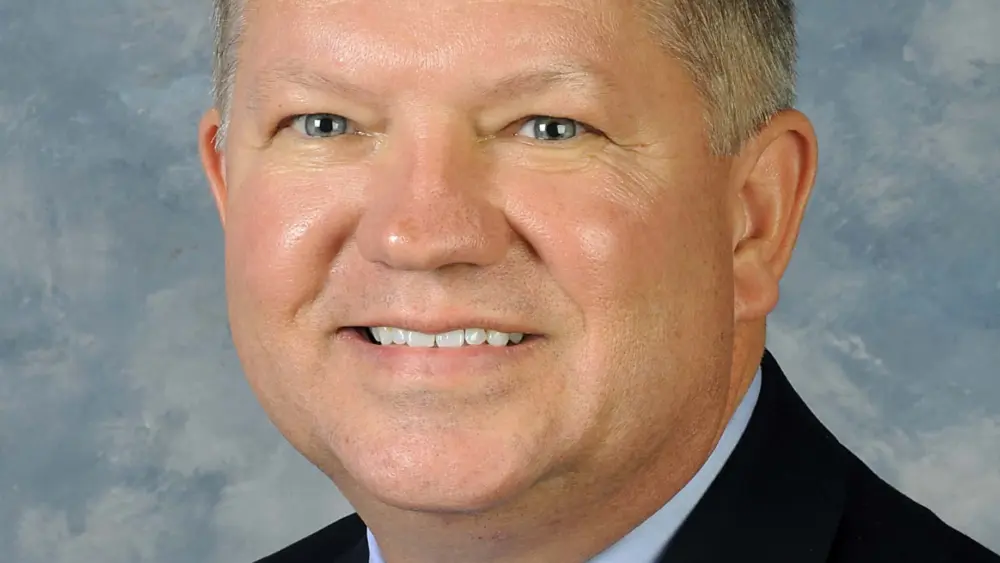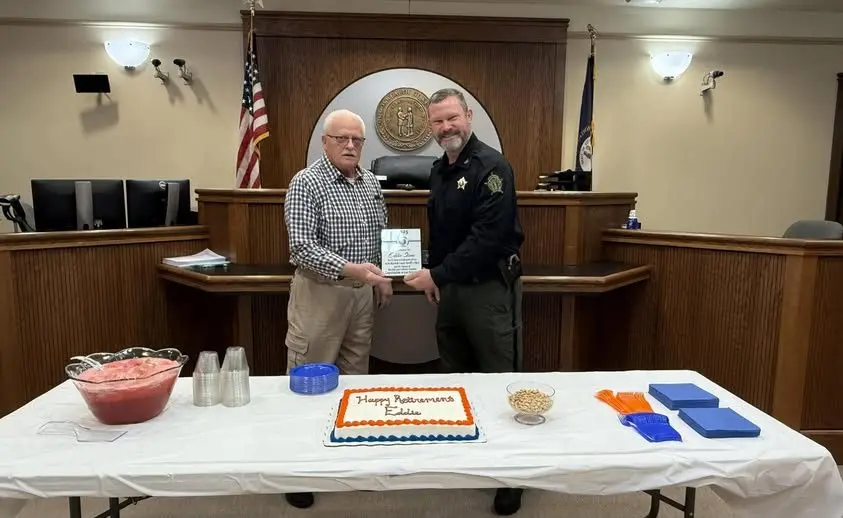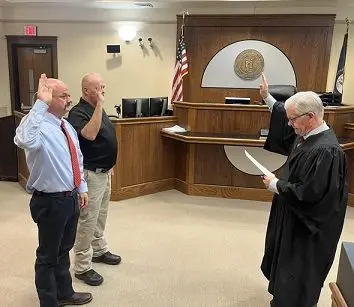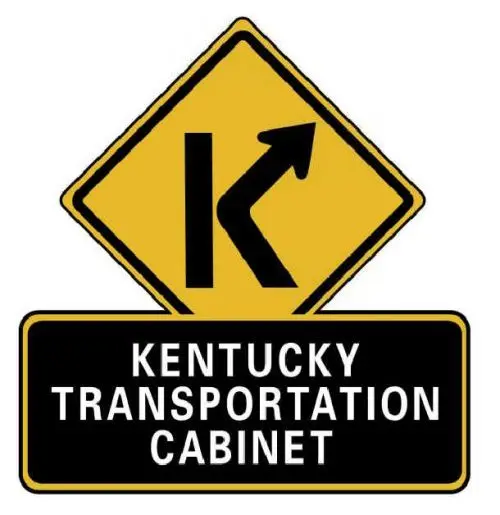It was an honor to serve you and our district in Frankfort this session. Called the “most productive and historic session in history,” I, along with my colleagues in the Senate, were proud to stand with Kentuckians as we passed historic legislation alongside our new House Majority. In November of 2016, citizens from across the Commonwealth gave us a mandate through the electoral process to fundamentally change our state. Voters chose a new House Majority to work alongside the Republican Senate Majority and Republican Governor Matt Bevin—a super trifecta that promised positive change for Kentucky.
And that trifecta upheld its promises to the people of Kentucky. As a result, Kentucky has a new identity today that will lead to economic growth, improved financial stability, and a better quality of life for our people. The General Assembly passed quite a few Senate priority bills that have now been signed by the Governor, including:
Senate Bill 1, known as the “Let Teachers Teach” bill, sets out comprehensive education reform that will effectively repeal Common Core standards while giving power back to local school districts and teachers. I was proud to be a cosponsor of this bill and I am extremely proud of the way this bill evolved in response to the concerns of stakeholders throughout the state. Senator Wilson, the bill’s primary sponsor, and his staff did a masterful job of developing this piece of legislation.
Senate Bill 2 increases transparency within the public pension system and adds more members to the Public Pension Oversight Board. Senate Bill 3 is another pension transparency measure that requires the disclosures of the retirement benefit information of current and former members of the Kentucky General Assembly. I believe transparency is crucial as we work our way through the pension crisis in our state and these bills will further those efforts.
Senate Bill 4 establishes medical review panels that will ultimately cut back on the number of frivolous lawsuits in our state and save taxpayer dollars. This bill will ultimately help attract physicians to our state and help alleviate physician shortages in many communities.
Senate Bill 5, a pro-life measure known as the “Pain Capable Unborn Child Act,” prohibits abortions after 20 weeks gestation, except in medical emergency cases. I was proud to co-sponsor this bill which will protect the lives of unborn children past the 20 week threshold. I look forward to the day when all unborn children in our state are granted the right to live.
Senate Bill 6, known as the “Paycheck Protection Act,” keeps union employees’ paychecks from being used for political purposes without their expressed consent.
Senate Bill 8 is another pro-life bill that defunds Planned Parenthood by prohibiting the use of state and local funds for abortions. It establishes a funding priority mechanism for the use of federal funds that places state, county, and local community health clinics first in line.
Senate Bill 11, “The Leeper Act,” lifts Kentucky’s nuclear moratorium to expand our state’s energy portfolio and keeps our state competitive in a global energy market. This was my priority bill for this session, and with the help of Rep. Steven Rudy and Rep. Gerald Watkins, we were able to get the bill through the legislature. I am also very grateful to the leadership of the Senate and the House and Governor Bevin for getting the bill signed into law. I believe this law will open up economic opportunities for our region and the entire state in the years to come. It was my honor to name the bill after my friend and mentor, former Senator Bob Leeper, who worked tirelessly for several years to get the moratorium lifted in Kentucky.
Senate Bill 17, known as the “Charlie Brown Law,” preserves students’ rights to political and religious speech in schools. The legislation was inspired, in part, by an incident in which a Kentucky county school removed the scripture verse from their “Charlie Brown Christmas” play due to the threat of a lawsuit. Courts have consistently held, however, that schools have the ability to sponsor and host religious and historical programs.
Senate Bill 50 provides local school districts the opportunity to move the start of the school year closer to Labor Day. This measure would extend the summer break for tourism activities, cut back on schools’ utility expenses, and mitigate heat stress on bus riders. The decision to move the starting date back is up to the local school board. The change is not mandatory!
Senate Bill 120 is criminal justice reform legislation that helps integrate ex-convicts back into the workforce. It would not apply to those who have violent offenses or who have committed sex crimes, among other exceptions. I was initially opposed to this bill because I felt it was going too far in allowing class C felons to participate in work-release and day-reporting programs. The bill’s sponsor agreed to remove this language and I voted in support of the bill.
Senate Bill 153 aligns state university funding with the state’s postsecondary education goals by basing funding on how well schools are helping students and the state reach those goals. This new model would be phased in over four years to provide stability to postsecondary schools as they move to this new formula.
We also passed a number of Kentucky House priority bills that became law including:
House Bill 1, known as “Right-To-Work,” prevents employees from being forced to unionize as a condition of employment. Kentuckians have the constitutional right to unionize, and they should have the constitutional right to choose not to unionize. Passing Right-to-Work has already attracted a number of businesses to Kentucky this year.
House Bill 2, pro-life legislation that requires physicians to provide an ultrasound prior to an abortion, ensures providers offer as much information as possible to women considering an abortion. This measure does allow a woman to opt out of viewing the ultrasound or hearing the heartbeat.
House Bill 3 repeals the prevailing wage. Prevailing wage drives up the cost of state government operations as taxpayer-funded projects are completed at inflated rates. The prevailing wage was an irresponsible use of taxpayer money. It is time to let the market decide rates.
House Bill 14, known as the “Blue Lives Matter” bill, makes it a hate crime to violently target law enforcement officials and first responders. I was proud to present this bill on the Senate floor during the session.
House Bill 520 allows for public charter schools. After eight years of passing charter policy through the Kentucky Senate only to watch it die in the House, our Commonwealth became the 44th state to offer charters as a publicly funded option for educating our children.
We built in many protections in our model to prevent charters from selectively enrolling students in ways that do not benefit the school district as a whole. Our model requires that only Kentucky-certified teachers with the same credentials as current educators can be used for student instruction. Public charter schools must follow the same health, safety, civil rights, and disability rights requirements that are applied to all public schools. In addition, a Kentucky public charter can adopt any and all of the regulations of current schools if they wish.
House Bill 471 addresses funding for charters. School districts currently use an allocation model that promotes educational equalization, equity, and adequacy based on the needs of its schools. For charter funding, a similar allocation model distributes a proportionate student allotment to the charter school based on the same factors. No siphoning away of public school funds occurs as money follows the students to whichever public school they choose to attend.
Charter advocates range from former President Barack Obama to current Kentucky Governor Matt Bevin. I firmly believe that Kentucky charters will benefit children and families through bold and innovative teaching and learning models. Charters will flourish where they are demanded with oversight by local school boards and through the continued work of quality Kentucky teachers.
On a more personal note, I was proud to cosponsor, along with Senator Dennis Parrot of Hardin County, a new page program in the Senate for kids with special needs. The “Sunny Page” program will promote and facilitate special needs students’ participation in the Senate’s daily page program during our annual sessions. Senate staff, the Senate clerk’s office, and LRC staff were instrumental in getting the program off the ground. I plan to work during the interim to promote the program throughout the state.
It is clear the 2017 Session is one for the history books. We passed laws that attract businesses to our state instead of pushing them away. We kept our commitment to Kentucky families by opening up new education possibilities, strengthening laws to protect our children, and giving minors in state care more opportunities to successfully transition into adulthood. We fought for more transparency in the state pension system to uphold the integrity of government. With the Kentucky Senate, House, and Governor working together, we delivered for the people of our great Commonwealth.
Although the 2017 Regular Session of the Kentucky General Assembly has come to an end, there is still much to do. Interim joint committees will begin meeting in June and discussing various policy topics that affect our Commonwealth. There has also been much discussion about a special legislative session to discuss tax reform and our failing pension system, and I look forward to continuing those conversations in these upcoming months.







